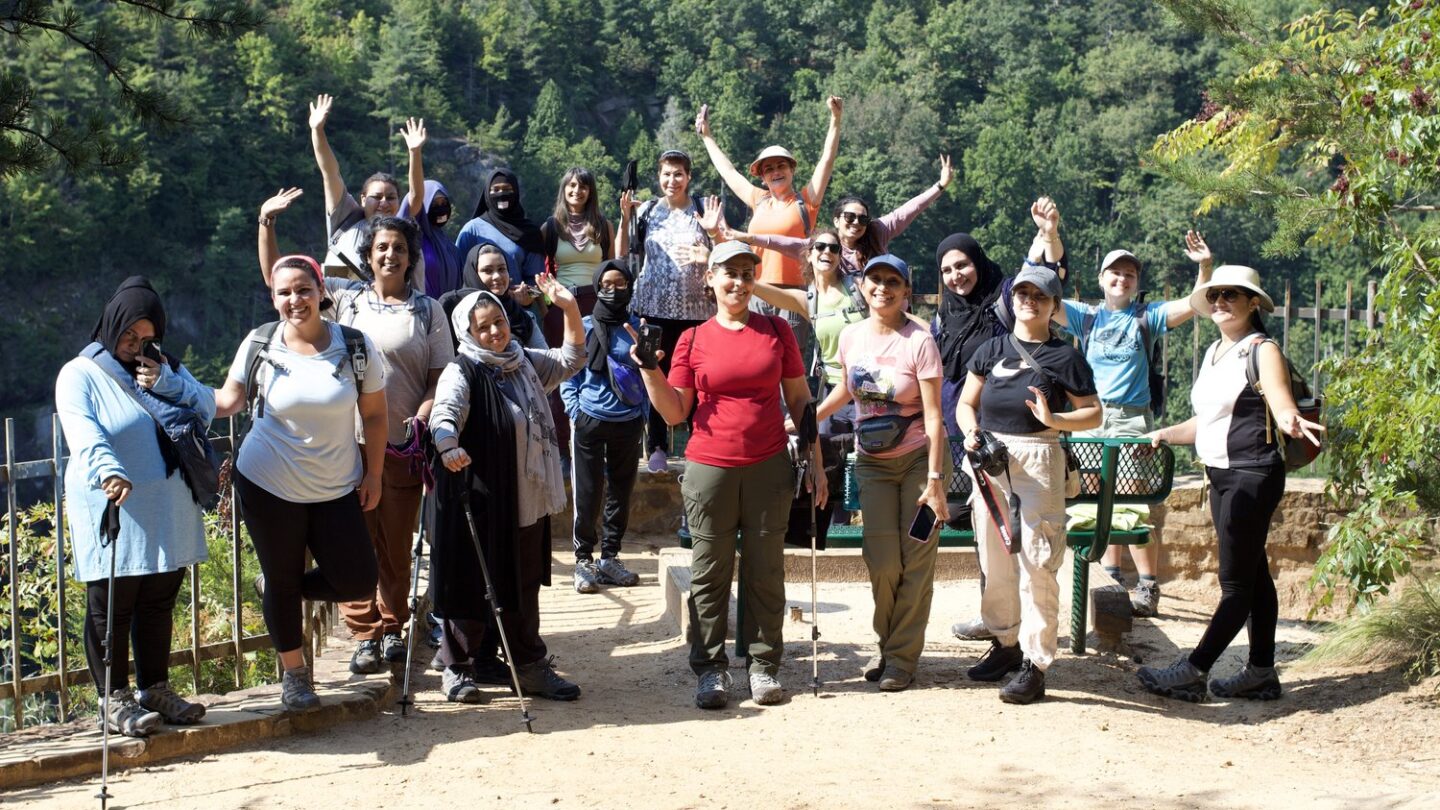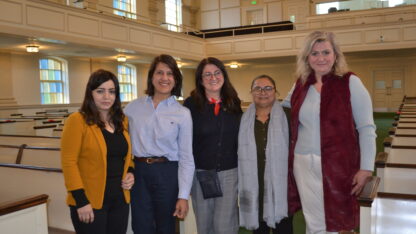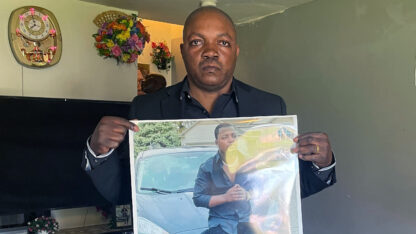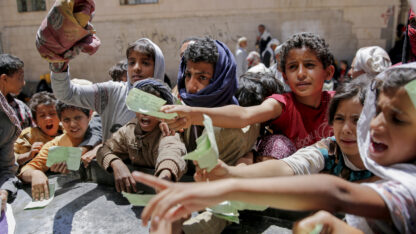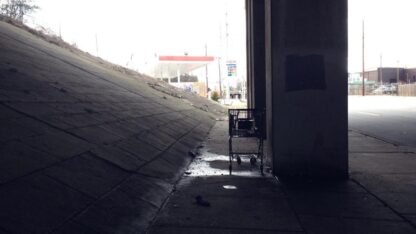On a cool, overcast Saturday morning just north of Atlanta, a group of hikers trekked along Vickery Creek trail chatting in a handful of languages.
Atlanta-based Refugee Women’s Network and the Georgia Conservancy partnered to form the refugee women’s hiking group. It started in 2021 as COVID-19 impacted physical and mental health outcomes for refugee and immigrant populations.
The hiking group has become a safe place for women to find community, get some exercise, take a moment away from family and work and break through the barriers of enjoying the outdoors in a new place.
Mehran Bina is a preschool teacher from Iran. She joined the hiking group when it first started last year.
“I don’t have any family here, so it’s a good place to be with friends,” she said.
Bena hiked with her siblings when they were younger and has a master’s in physical education. She said she likes this group because she gets to meet people, and she was able to translate between several women as the group hiked the well-worn clay path.
Plus, it helps her stay healthy.
And that’s part of the goal. Immigrant and refugee populations already faced barriers to healthcare before the pandemic. This was one way the Refugee Women’s Network sought to alleviate some of the difficulties, said Temple Moore, the Community Health Promotion Program Manager for Refugee Women’s Network.
“Our refugee and immigrant women are our health brokers,” she said. “They’re the mothers and the ones that are looking out for us, but often don’t take time for themselves.”
Hikers were from countries like Afghanistan, the Democratic Republic of the Congo and Egypt. Some come with hiking experience, but that’s not necessary or required to join the group, Moore said.
Through partnerships with companies like REI and Patagonia, Refugee Women’s Network and the Georgia Conservancy have been able to supply hikers with walking sticks, water bottles, hiking shoes, snacks and other gear that helps reduce the physical barrier to the outdoors.
Moore and a team of volunteers lead the monthly hikes with boundless positive energy, often paired with a knowledgeable park ranger, to help refugee and immigrant women feel more comfortable on the trails. They want to empower hikers to see they belong on trails just as much as everyone else, and encourage the women to come back and bring families and friends, too.
Bena and other hikers have done just that. She said she enjoyed bringing her husband and two sons on hikes she had done with the group.
“A lot of people hiking in Georgia kind of have the same look or same backgrounds,” said Brian Foster, who helps coordinate the hikes for the Georgia Conservancy. “We noticed that we have a large group of new Georgians here, new Americans who live in metro Atlanta and we want to help get folks outside because it’s such a healing place and a place for fellowship and community.”
Foster said the hiking group also is another way to build up a group of advocates who treasure the nature around them and will work to protect the environment surrounding their communities.
“An outdoor adventure doesn’t mean climbing a mountain or spending thousands of dollars on outdoor gear,” Foster said. “It really doesn’t mean driving more than an hour from your house. We’re known as the city in the forest. We’ve got a lot of green space right here.”
At the end of each hike, the group shares a meal prepared by the Chef’s Club, another Refugee Women’s Network initiative that teaches refugee and immigrant women how to run their own businesses in the food industry.
After taking pictures by the waterfall and hiking back up along Big Creek, the hikers shared lentil shawarma and a bright green chutney as the sun broke through the clouds. They laughed, swapped stories of their kids’ antics, and joked about their husbands.
“Everyone can feel a sense of belonging and the outdoors. But it’s not often easy, especially when you don’t speak the language,” Moore said. “I think that’s the power of bringing different people together. Everyone can enjoy a waterfall, and you don’t need to have the language.”
